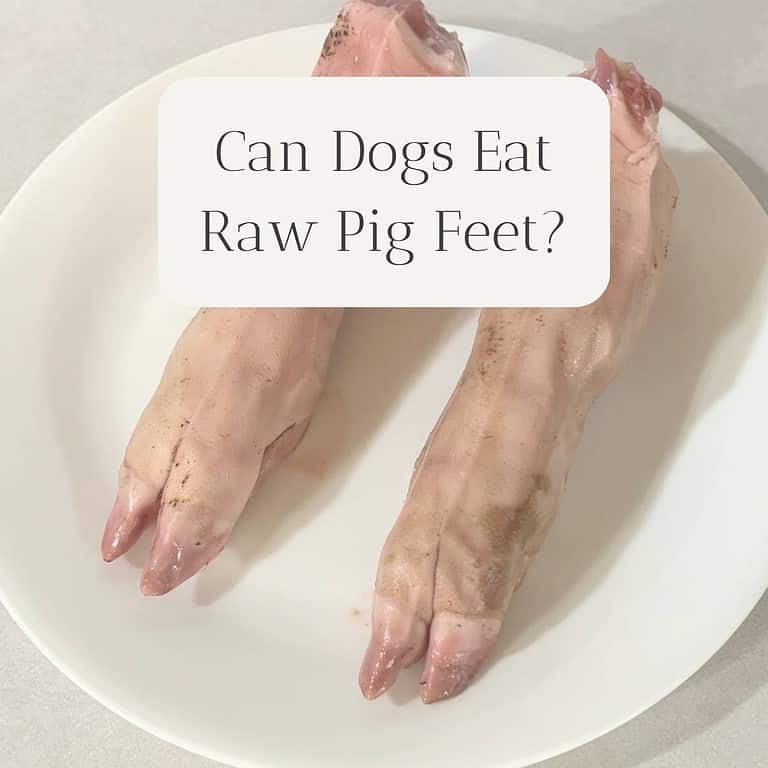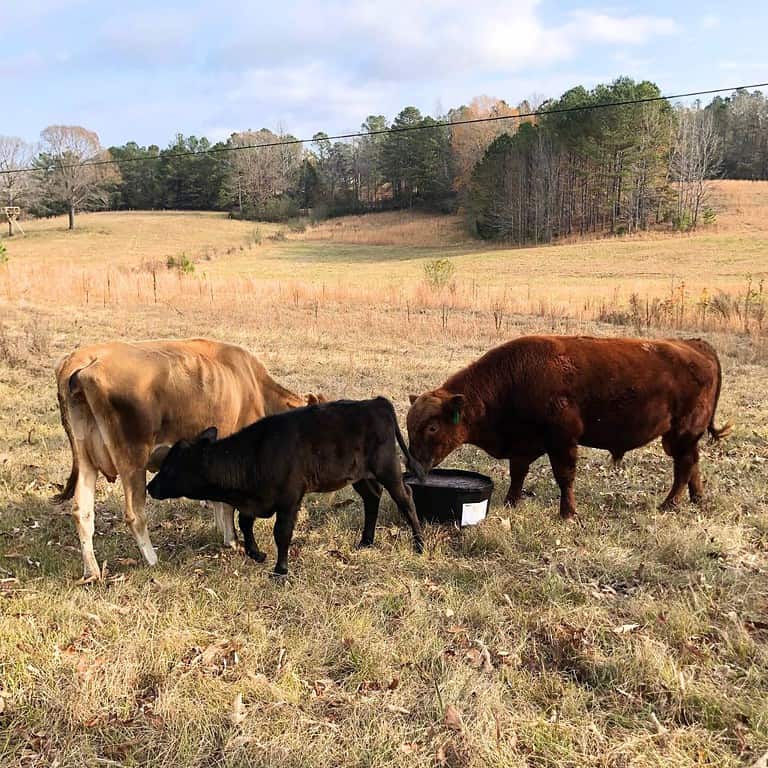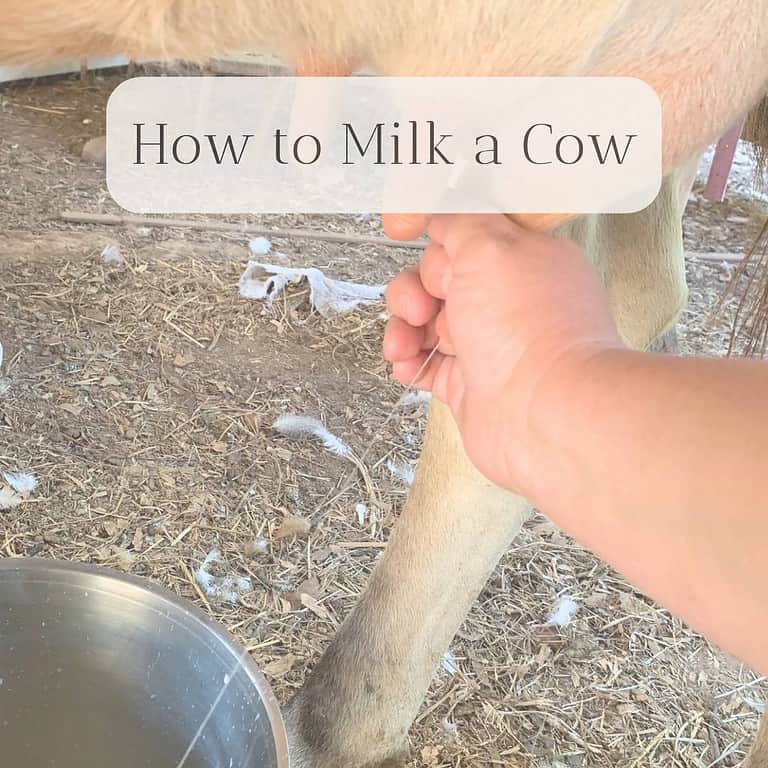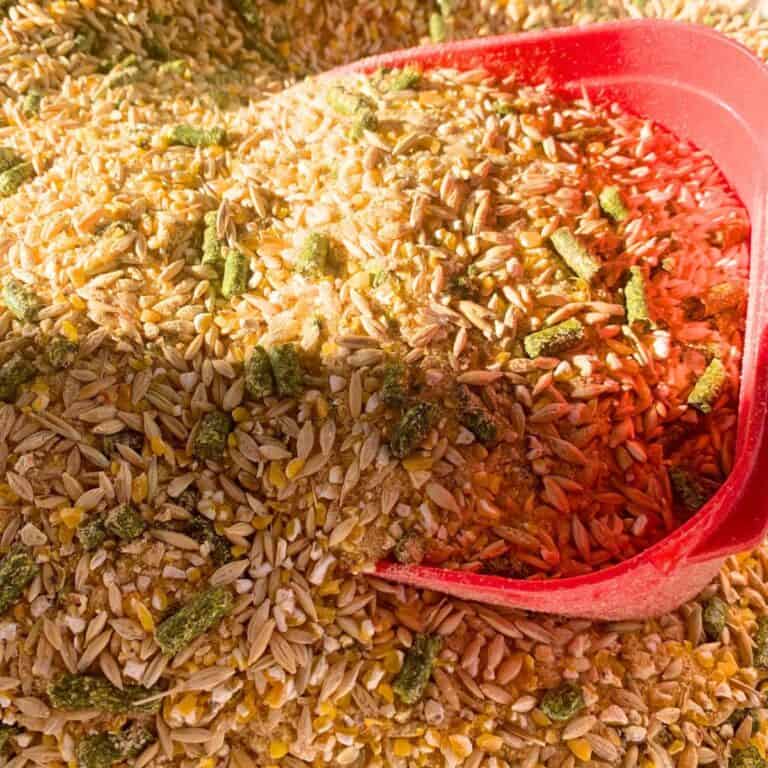Can Dogs Eat Scrambled Eggs With Milk?
Are you flooded with eggs and wonder if your dogs can eat scrambled eggs with milk? That’s what is on my mind these days! Chicken math is a real thing people and we have a LOT more laying hens than we need at the farm. But because they’re so cute as baby chicks and because there are so many beautiful varieties of chickens, we couldn’t help ourselves and ordered too many!

This post contains affiliate links, which means I make a small commission at no cost to you if you place a qualifying purchase through any of the links. Read my full disclosure here. Thanks for your support!
Now, you’re probably only in the “I have too many eggs” box if you raise your own chickens. You probably wouldn’t consider cooking those costly eggs for your furry friend if you have to pay the fortune that stores charge for eggs these days!
However, if you are in the unique position of having too many eggs and not knowing what to do with them, here are your options.
What To Do When You Have Too Many Eggs
Eat them.
You can use eggs to make protein-rich meals. Fried or scrambled eggs are great but you can also use up your eggs in baked goods. If a recipe calls for two eggs, slip in an extra one. I doubt you’ll notice any real difference. You can also boil eggs for egg salad and various other cold salads that call for using eggs. Breakfast casserole dishes are also an excellent option to use up extra eggs.
Don’t forget to try cast iron Dutch baby pancakes! You can easily use eight to a dozen eggs. Quiche is also a great dish if you need to start concealing the eggs when your family starts to complain about having to eat so many eggs.
Sell them.
Check with your local county extension agent first but you can probably sell your eggs right from home without having to jump through too many hoops.
Preserve them.
If you scramble your eggs first, you can freeze them in silicone muffin liners and then pop them out to store them in freezer bags for later use. (Note: Always scramble your eggs first if you plan on freezing them. The texture will be off if you don’t.)
You can also dehydrate scrambled eggs, powder them up, put them in a mason jar and vacuum-seal them. (I use this vacuum-sealer that fits wide mouth and regular mouth mason jars.) If you have a freeze-dryer, you can also freeze-dry them, powder them, and seal them up in jars.
Water-glassing farm fresh eggs (not grocery store eggs) has gained popularity in recent years. I haven’t tried it but do your own research if you decide to give it a go.
Give them away.
We took 23 dozen eggs to a friend a few weeks ago. If you have too many eggs, bless others with your bounty!
Feed them to your animals.
This is where this post is relevant. Most of the animals that we have on the farm forage for their own food. Even the barn cats hunt for mice and other small critters in the woods but we still give them cat food when we see them.
However, dogs are different. They can’t eat grass, shrubs, or bugs. With three guardian livestock dogs, we go through quite a bit of dog food every month. But what if we can reduce the amount of dog food we give them by supplementing their diet?
I wrote a whole post about feeding dogs raw pig feet if you’re interested in other ways to save on your dog’s food budget.
Our dogs eat commercial dog foods but they also eat people food like scraps…and scrambled eggs with milk. But is it safe for them? Let’s take a deep dive!
Can dogs eat scrambled eggs?
Eggs are a great source of protein. But not all eggs are not created equal.
First, let’s acknowledge the difference between organic, farm fresh eggs and the average egg at your grocery store that has been mass-produced from chickens living in tiny cages or chicken houses without access to fresh pasture or bugs.
Pastured poultry eggs have higher omega-3 fatty acids
Organic eggs from hens that free-range and eat plenty of green plants, seeds, and insects have a higher amount of omega-3 essential fatty acids. In fact, the Nourishing Traditions cookbook states that farm fresh eggs have omega-3 and omega-6 fatty acids in the beneficial ratio of about one-to-one. Whereas, commercial eggs have a reduced amount of omega-3 fatty acids and the ratio of omega-3 and omega-6 is lopsided…which causes potential health problems.
One study showed that omega-3 fatty acids promote musculoskeletal health, according to the U.S. National Institutes of Health (NIH). Another NIH study showed that omega-3 fatty acids alleviate symptoms of autoimmune disease and sepsis.
Pastured poultry eggs have higher amounts of lutein
Lutein (also known as “the eye vitamin”) is a type of pigment called a carotenoid. It is related to beta carotene and Vitamin A. WebMD states that lutein helps prevent eye diseases including cataracts and age-related macular degeneration.
It’s obvious to anyone who puts a farm egg up against a commercial egg. The difference in the color of the egg yolks is very interesting!
Commercial eggs lack the same nourishment that comes naturally to pastured poultry eggs. As mentioned above, free-range hens eat their fill of bugs, seeds, and green plants. And they have all the sunshine and exercise they want.
When you crack open a pastured poultry egg and see a dark orange egg yolk, you can be sure that the egg has a high amount of beta carotene lutein in it. One NIH study confirmed that people eating organic eggs for 8 weeks had higher beta carotene lutein levels.
Pastured poultry eggs have many other health benefits
The same NIH study showed that organic eggs are lower in saturated fat, have fewer endocrine disruptors such as dimethyl phthalate, are less exposed to antibiotics, are more nutrient-dense, and are less contaminated by Salmonella bacteria. If that wasn’t enough, they also highlight that people eating organic eggs had significantly lower levels of inflammation!
So can dogs eat scrambled eggs?
Yes, dogs can eat scrambled eggs. There’s no reason to think that pastured poultry eggs cause harm to dogs given the numerous health benefits listed above.
Our dogs even search for chicken eggs that are laid in convenient-to-reach locations. And they eat the raw eggs and sometimes even the egg shells!! (In my opinion, the egg shells are just extra calcium and other minerals for them.) I’ve also seen our dogs master the art of putting a whole egg in their mouth, gently puncturing a hole in the shell, putting the egg on the ground, and licking the raw egg out!
However, I would only recommend small amounts of cooked egg in your dog’s diet if conventional eggs are your only option.
Can dogs drink milk?
My answer has to be that not all milk is created equal.
Some dogs are said to be lactose intolerant meaning that milk causes them to have an upset stomach. Some adults may also have allergic reactions but it’s probably not as prevalent as some researchers have suggested in the past according to a University of Alabama article “Lactose Intolerance May Not Be As Common As We Thought.”
Commercial milk
Most commercial milk has been pasteurized and homogenized. The Nourishing Traditions cookbook goes over all the science but here is a little bit of what the book includes. Pasteurization is the process where milk is heated to destroy all the enzymes. The test for successful pasteurization is the absence of any enzymes.
Pasteurization
Pasteurization also destroys lactic-acid-producing good bacteria that beat out and protect against bad bacteria (salmonella).
Not only that, but heating the milk alters the milk’s essential amino acids lysine and tyrosine, making the proteins less available. And pasteurization almost or completely destroys vitamins.
Vitamin C is lost by 50%, other water-soluble vitamins lose as much as 80%, and Vitamin B (specifically B12, which is needed for healthy blood and a properly functioning nervous system) is totally destroyed.
Minerals and other nutrients are also decreased or destroyed during pasteurization. This includes the Wulzen (or anti-stiffness) factor, calcium, chloride, magnesium, phosphorus, sulfur, potassium, sodium, and many trace minerals.
Synthetic Vitamin D (D2 or D3) is added to replace what was lost but synthetic D2 is toxic and has been linked to heart disease. Additionally, other chemicals may be added to suppress odor and restore taste.
Homogenization
Homogenization has also been linked to heart disease. The list of alarming details associated with commercial milk goes on.
I remember as a young kid going to my grandma’s house frequently. She always had skim milk in her refrigerator. I remember seeing her milk through a clear glass and it had a greyish to bluish color to it and looked watery. It was not white.
So what do the milk companies add to their skim, 1%, and 2% milk nowadays to make it white? It’s highly-processed powdered skim milk which is harmful to arteries, toxic to the nervous system, and creates potent carcinogens!
But raw milk is different.
Raw milk
The Weston A. Price Foundation has decades of research on the health benefits of raw dairy products. They even have a raw milk testimonials page that has tons of praise reports from families who were healed by drinking pastured raw milk!
Pastured (not pasteurized) raw milk is full of vitamins, minerals, and enzymes.
Raw milk from cows that are grazing on good, green pasture is rich in vitamins, minerals, and enzymes. The quality of the raw milk is directly related to the quality of the diet of the cow. That should be obvious, right?
Even raw milk from some dairies are not as good as Belle’s milk. That’s because their cows never even go outside to graze on green grass! They are fed a huge diet of grains that are made to increase their milk supply.
I know because I wrote a post comparing raw cream between our cow and another Jersey cow fresh off the truck from a conventional dairy.
I’ve noticed that raw milk from our pastured dairy cow Belle has a yellowish color to it. That’s because of the butterfat content in her milk.
When I make butter in the spring with all that quickly growing spring grass, Belle’s cream makes it the richest, most yellow butter I’ve ever seen. It’s nothing like what you can buy from a grocery store. It’s more nutrient dense.
Raw milk can be A2 milk…which is better.
We had Belle’s milk tested before we bought her and she produces A2A2 milk. Most commercial milk is from cows that produce the A1 variant of the beta-casein protein.
The A1 and the A2 proteins affect the body differently. In fact, most people who claim to be lactose intolerant are actually sensitive to the A1 protein but can drink A2 milk with no issues. For example, a lot of people who claim that they can’t drink cow milk can drink goat milk with no tummy upset. Goat milk is naturally A2A2.
An NIH study explains how the A1 milk has a mutation in the 67th position that creates a morphine-like small peptide (beta-casomorphin 7 or BCM7) that is hard to digest. Their research supports that BCM-7 carries a risk for diseases like gastrointestinal discomfort, type 1 diabetes, ischemic heart disease (the heart doesn’t get enough blood and oxygen), and neurological issues like decreased cognitive processing speed and accuracy.
Am I selling you on A2 milk yet?
So can dogs drink milk?
Yes, dogs can drink milk. If it’s raw milk from grass-fed cows, it’ll be a nutrient-dense living food full of good bacteria, vitamins, minerals, and enzymes. It will bring life and health! But don’t go overboard because the high-fat content can lead to weight gain if they drink too much milk.
However, I would limit conventional milk if that’s your only option. And dog owners should only give milk as an occasional treat as long as they don’t have food allergies.
Can dogs eat scrambled eggs with milk?
The short answer is yes! If the eggs are pastured poultry eggs and the milk is raw milk from grass-fed cows, it’ll be a nutrient-dense healthy meal for your dogs! If you have a sick dog, the good news is that it’s an excellent source of protein and will strengthen their immune system. It’s a very nutritious treat!
Our dogs eat scrambled eggs with milk to save on pet food costs!

If all you have access to is commercially-raised eggs and commercial milk, I would limit how much I give them. It’s a good idea to give small dogs small portions. Otherwise they may get health issues like stomach upsets.
However, if you have pastured poultry eggs and raw milk, it’s great to feed to your four-legged friends as an alternative to more expensive and highly processed dog food. I just recently discovered that even “good” quality dog food has been highly processed, making it unhealthy for dogs.
I also recently learned that dogs today have an average life expectancy of about half of what it used to be a few decades ago. Before processed dog food.
The more you can cook healthy food for your dogs, the better their health will be.
My parents used to live next to some wonderful people who had a 22-year-old Labrador retriever. The old dog got overheated in our hot Alabama climate a few years ago, so the neighbors took him to the vet.
The vet called them the next day saying that he couldn’t get their dog to eat anything. Funny enough, the neighbor said “Well, I’d say not. I’ve been cooking for him for over 20 years. He’s not going to eat dog food.”
That’s kind of a funny story, but I told it so that you could start thinking about “dog food” differently. Not only is home cooked, healthy food better for humans, they’re better for your furry friends, too.
I hope this post was helpful! And since we agree that pastured poultry eggs and raw milk are SO MUCH BETTER for your canine companion than commercial eggs and milk, it goes without saying…but I’ll say it anyway…pastured poultry eggs and raw milk will be SO MUCH BETTER as human food, too!!
Shop This Post! “Can Dogs Eat Scrambled Eggs With Milk”
vacuum-sealer for wide and regular mouth jars
Nourishing Traditions cookbook
Other Posts Related To “Can Dogs Eat Scrambled Eggs With Milk”
The Secret to Raising Livestock for Cheap!
Can Dogs Eat Raw Chicken Feet and Legs?
Cook Eggs in a Cast Iron Skillet Without Sticking
Pin “Can Dogs Eat Scrambled Eggs With Milk” For Later!








Thank you for this! We give our dogs a scrambled egg every now and then. When I was making them last night, I wondered if I could add a tbsp of milk to make them fluffy!
With egg prices as high as they are currently, it would be nice to have a surplus! Do you have any info on getting started raising chickens, by chance? It’s all the craze and I just wondered how easy it really is. Thanks for all the good info!
Thanks! Chickens are really easy and cheap if you raise them the way we do. I’ve written a few posts on chickens you might be interested in. I talk about ordering and brooding baby chicks here: https://riversfamilyfarm.com/when-is-the-best-time-to-order-baby-chicks/. I talk about how we feed them for CHEAP here: https://riversfamilyfarm.com/the-secret-to-raising-livestock-for-cheap/. And if you’re into harvesting meat chickens, you can read two posts here: https://riversfamilyfarm.com/its-a-homestead-chicken-harvest-day-part-1-why-and-what/ and here: https://riversfamilyfarm.com/homestead-chicken-harvest-day-part-2/. Thanks for reading!!
I used to add milk to my eggs, but stopped! The dog always eats all of the leftovers from the kids each morning haha. Now that we use raw milk, I should try adding it back in again. Thanks!
We give our dog eggs all the time & milk on occasion. We attend to spoil our pup. Lol Great post, thanks for sharing!
I’ll admit I have never wondered this. lol I tend to stay away from feeding real food to animals, though I know it’s probably actually better for them in most cases. We don’t have a dog right now, but this information will be useful for the future!